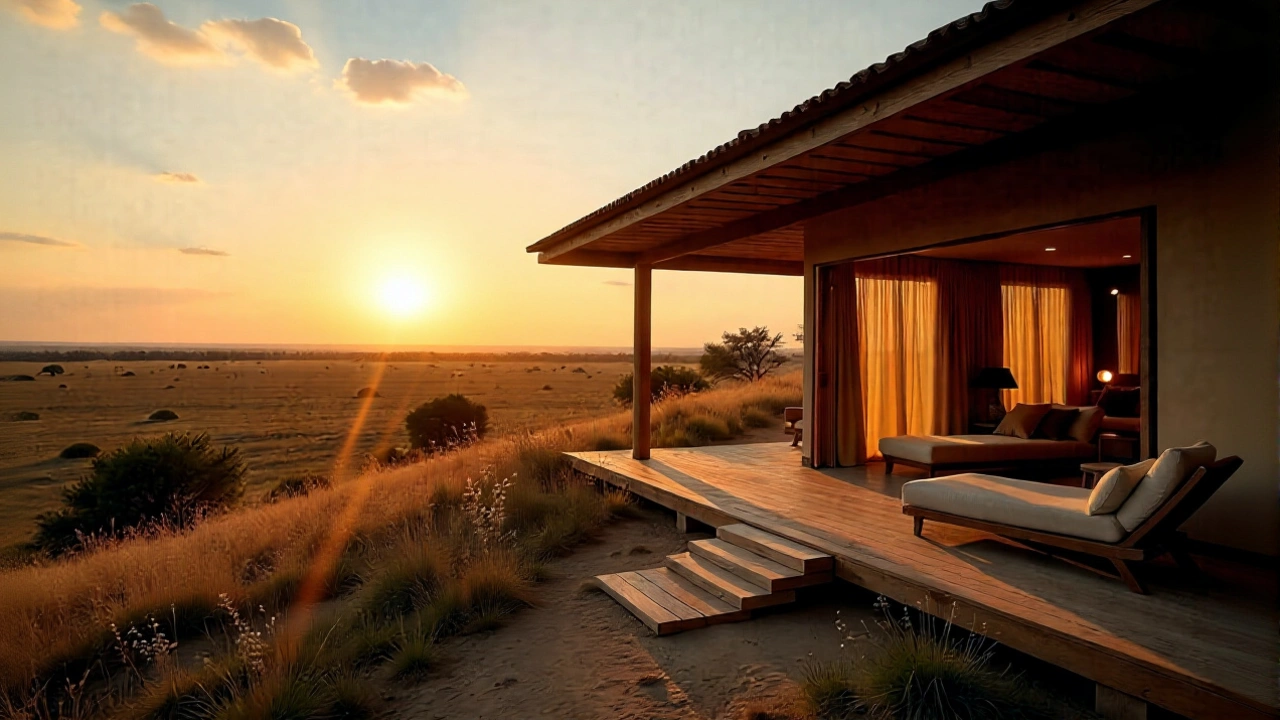When UN World Tourism Organization released its 2024 visitor numbers, the headline was impossible to ignore: 74 million travelers set foot on African soil, a 13.6% rise over the previous year, and the continent now ranks as the world’s second‑fastest‑growing tourism region. The surge is being driven largely by luxury tourism, a segment that promises premium spend but, as new research shows, is leaving many local communities empty‑handed.
Numbers That Matter: The Luxury Surge
According to the World Travel and Tourism Council, average spending per visitor in Africa jumped sharply, positioning the continent among the fastest‑growing luxury markets worldwide. The council projects the sector will pump $168 billion into African economies over the next decade and generate more than 18 million jobs. That is a striking figure when you compare it with the global luxury travel market, valued at $1.38 trillion in 2023 by Grand View Research, and expected to grow about 8% through 2030.
Sub‑Saharan destinations alone welcomed 42.6 million of those tourists, with flagship locales like Kenya, South Africa, Tanzania, Botswana, and Mauritius converting savannahs, coastlines, and wildlife reserves into high‑end retreats.
Where the Money Vanishes – The Leakage Problem
A study from the University of Manchester paints a less rosy picture. Researchers identified three main culprits that keep profits from reaching everyday citizens.
- Foreign ownership: Many of the most lucrative eco‑lodges are owned by overseas investors, meaning that a sizable slice of revenue is repatriated.
- Leakages: Tourist dollars often flow to foreign travel agencies, imported luxury goods for hotels, or are sent back as dividends to distant shareholders.
- Rising inequality: While a handful of wealthy locals and expatriate operators see windfalls, wages for most tourism staff remain modest.
In Mauritius, for instance, locals complain that "foreigners are taking over the island" and that they can no longer claim their own best beaches. Similar sentiments echo across Kenya’s Maasai Mara, where the famed Angama Mara lodge—owned by an American hospitality group—draws high‑spending guests but offers limited jobs for nearby villages.
Governance Matters: Democracy vs. Autocracy
Dr. Amrit Behuria, lead author of the Manchester study, argues that political systems shape how countries respond to these challenges. "Democratic governments like Mauritius and Botswana feel the pressure of upcoming elections and public unrest over unemployment, so they are more willing to tweak policies when luxury tourism underdelivers," she said.
By contrast, Rwanda’s authoritarian regime, despite its impressive gorilla‑trekking revenues, has doubled down on its luxury‑tourism blueprint, betting that long‑term gains will outweigh short‑term social costs. The government continues to channel foreign investment into high‑end lodges around Volcanoes National Park, even as local unemployment rates linger above 15%.
New Luxury Offerings: Wellness, Sustainability, and Tech
The market is evolving beyond traditional safaris. Travelers now crave meaning, wellness, and low‑impact experiences. Operators such as ROAR AFRICA are pioneering ultra‑luxury tours that embed conservation, local artisan partnerships, and solar‑powered lodges.
From digital detox retreats in Botswana’s Kalahari to yoga immersions on the Drakensberg, Africa’s natural assets are being repackaged as back‑to‑nature sanctuaries. Luxury train journeys, private charter flights, and curated cross‑border itineraries now rival the likes of Europe’s rail routes, giving affluent guests a seamless high‑end experience from Victoria Falls to the Okavango Delta.
Infrastructure Push and Future Outlook
At least nine African nations have overhauled visa regimes, added direct flight connections, and upgraded key airports such as Nairobi’s Jomo Kenyatta and Mauritius International. These moves are designed to strip away friction for high‑spending visitors and keep them in the continent longer.
Digital platforms are also leveling the playing field. Virtual property tours let travelers explore a lodge’s view of the Serengeti from their living rooms, while AI‑driven concierge services promise hyper‑personalized itineraries. Research labs across Cape Town and Kigali are testing immersive VR experiences that could let potential guests “walk” through a safari before booking.
What does the next decade hold? If leakage pathways aren’t sealed, the promised $168 billion could still flow outward, leaving local economies with a fraction of the benefit. Critics say the solution lies in stricter ownership caps, profit‑sharing mandates, and stronger support for community‑run enterprises. Supporters argue that continued foreign capital is essential for the high‑standard infrastructure that luxury travelers demand.
The tension between global appetite for African opulence and the continent’s need for inclusive growth will shape policy boards, investment decks, and community meetings alike. One thing is clear: Africa’s luxury tourism market is no longer a niche—it’s a decisive economic engine, and how its profits are distributed will echo across the continent’s development trajectory for years to come.
Key Facts
- 74 million visitors in 2024, 13.6% year‑on‑year growth.
- Luxury segment projected to deliver $168 billion by 2034.
- Study finds up to 70% of revenue leaks out of local economies.
- Democratic nations show more policy flexibility than authoritarian ones.
- New wellness‑focused lodges and high‑tech booking tools are reshaping the visitor experience.
Frequently Asked Questions
How does the luxury tourism boom affect local employment?
The sector creates millions of jobs, but most positions are low‑wage roles such as housekeeping or guiding. High‑skill, high‑pay roles are often filled by expatriates or a small elite, limiting broader wage growth.
What are the main reasons revenue leaks out of African economies?
Foreign ownership of lodges, reliance on imported luxury goods, and the use of overseas travel agencies funnel large portions of tourist spend back to investors outside the continent.
Which countries are leading the luxury tourism push?
Kenya, South Africa, Tanzania, Botswana, Rwanda, Mauritius and Zimbabwe are the primary hubs, each marketing high‑end safaris, private estates, and wellness retreats to affluent travelers.
How are democratic governments responding to the leakage issue?
Countries like Mauritius and Botswana are experimenting with profit‑sharing schemes, stricter foreign‑ownership caps, and incentives for locally‑owned boutique lodges to keep more money on the ground.
What trends are shaping the future of African luxury tourism?
Wellness experiences, sustainable solar‑powered resorts, AI‑driven personalized itineraries, and immersive virtual previews are becoming standard, as travelers look for purpose‑driven luxury.

